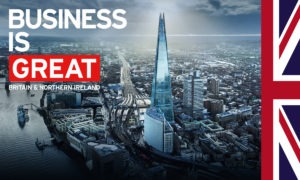Top 5 Tips for Entering the UK
The UK is the 5th biggest economy in the world. We are world leaders in AI, have a thriving Fintech sector and have been amongst the fastest adopters of mobile tech and ecommerce.
The kneejerk response to Brexit from many quarters has been to focus on the challenges for our businesses, but there are also significant opportunities. New trade deals will be struck, potentially free from some of the constraints imposed by the EU. It will be possible for international companies to do business in the UK in a different way, accessing opportunities here which potentially were previously unattractive. Many companies will be thinking about entering the UK market, but may still have questions around what they should know if they’re planning to enter the UK market.
White Space Strategy has delivered over 300 strategy projects on the UK market, helping blue chip companies plan for UK market entry. These span a wide range of market sectors, B2C and B2B, each based on a detailed UK market evaluation. I’ve drawn on this experience to identify 5 things I think every international company should know if they’re thinking about expanding into the UK.
1. We’re 4 countries, not 1
The United Kingdom consists of England, Scotland, Wales and Northern Ireland. This is very obvious but is something people often forget or don’t fully understand.
There are a lot of similarities between these 4 countries, but also some big differences. For example, language. Whilst almost everyone speaks English, it can be a requirement to also deliver services in Welsh to work in the Welsh public sector. When one of our financial services clients found this out, they deprioritised Wales when thinking about cities and regions to launch in.
London is in many respects its own country. Culturally, it feels very different to most other parts of the country. Income and wealth levels are significantly higher, but so is inequality.
The North of England and the Midlands have lower income levels than some other parts of the country, but also contain some of our most vibrant, up-and-coming cities such as Birmingham and Manchester.
Scotland, Wales and Northern Ireland have their own devolved governments: public sector procurement works very differently in each of them.
What does this mean for a company thinking about entering the UK? Think regionally, and it may be possible to carve out a greater opportunity and a stronger fit with your offering.

2. There are some easy ways to reach UK consumers
High internet uptake means online advertising works well over here. Costs for PPC and social media advertising have been increasing recently, but it’s still possible to have a big impact via a campaign you may have orchestrated thousands of miles away.
Platforms like TikTok and Instagram are extensively used by under 25s. Professionals and business people use LinkedIn. These create easy access to potential buyers.
Companies in the UK are usually quite open to collaboration with international partners. They will be keen to develop new revenue streams, and may be interested in doing business in your country. Most business leaders are on LinkedIn, so send them some InMails!
If you want to reach affluent consumers in London, the Underground is a great place to advertise. Lots of start-ups and growth ventures advertise in tube trains, and also on escalators in the stations.
So, launching your business over here won’t necessarily require a big budget or complex planning.

3. Imperfect English is not a barrier to doing business over here
Having said that companies are sometimes required to use the Welsh language, almost everyone over here speaks English. People are generally very tolerant of businesses and businesspeople from other countries who don’t communicate in English perfectly: most of us don’t speak any other languages, and we recognise that your English is a heck of a lot better than our version of whatever you speak.
Demonstrating this point, I once sat on a flight from Oxford to Edinburgh on a plane run by a Greek company. A notice in front of me told me that ‘live vests’ were under my seat. The air steward had given me a couple of beers by this point, though, and I found it all very funny. A lack of perfect English hadn’t prevented them from entering the UK market, and isn’t a barrier for other companies either.
4. Tech adoption is variable
Consumers have been very quick to embrace mobile tech, and to spend money via the internet. Around 50% of people shop for groceries online. Uptake of mobile banking and mobile entertainment is high.
Business investment in tech has been highly variable. We have some hugely tech advanced companies, who are working in the cloud, embracing data analytics, APIs and tech-enabled ways of working. Many others have yet to invest, struggling to find the capital in the decade following the financial crash.
If you’re looking to buy a UK company, or partner with one, it would be worth looking into this in depth. How heavily have they invested in IT? Is their workforce well placed to embrace change?
And, if you’re looking to sell to UK consumers, going online, potentially through an existing platform, could provide an easy route to market.
5. Support is available from the UK Government
Our international reputation has been battered by Brexit, and our Government is desperate to attract inward investment.
The great.gov.uk website is a good place to start, to gain an understanding of the support and resources that may be available to your business.
Support available includes a support directory for professional advisors, information on tariffs, taxes and rules, help setting up a local supply chain, and introductions to industry leaders, chambers of commerce and centres of R&D excellence.
White Space Strategy has an approved listing on the great.gov.uk website, which outlines our expertise in this area and our ability to help companies navigate their way through the wealth of resources available.
Large businesses, with millions of pounds to invest, are well placed to discuss support directly with the UK Government. Historically, we’ve been open to providing financial assistance and broad ranging support. This is likely to be especially interesting to the current Government if it can be shown to benefit the North of England. This is because they won a lot of votes in our recent General Election in this region on the back of promises to invest in it.

How White Space Strategy can help
We’ve got a lot of experience helping mid-large sized businesses plan for UK market entry. This often involves conducting a UK market evaluation, based on detailed market sizing and interviews with prospective customers to work out if there’s sufficient need and brand alignment.
Once companies have decided to enter the UK, we’re able to develop more detailed entry strategies and go-to-market plans. This includes conducting a full UK market analysis, including assessing whether offerings need to be fully localised. A lot of our projects involve identifying potential partners and sales channels, and working out what the best business model is to get up and running efficiently over here.
We also do a lot of work with international companies who are already established in the UK, who are looking to accelerate growth. This often involves looking for new sales and marketing levers that can step-change growth, or for new and better ways to build more localised propositions. I co-authored a guide to creating strong unique selling points which companies in this position may find useful.
More information on how we can help, and on our experience, is summarised on a dedicated page on our website.
If you’d like to discuss this with us further, feel free to get in touch with me personally, or contact the office
Blog author:

John Bee
Managing Director


